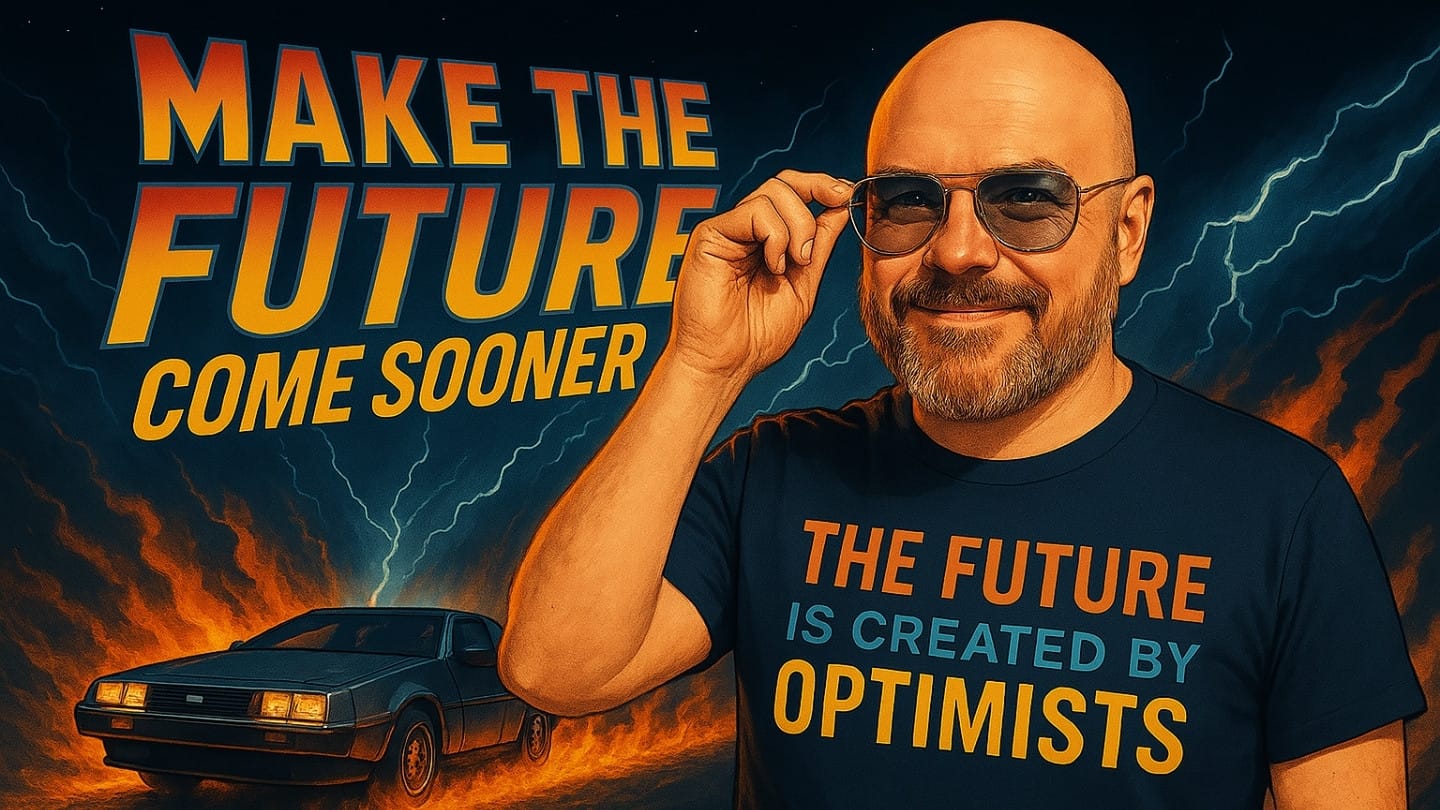
🦾 What can we learn from the Swedish IT miracle for the AI era?
Newsweek named Stockholm Europe's internet capital. Swedes had the most computers and the best broadband in the world. From the Swedish IT miracle, Skype, Spotify, and many other unicorns were born. What can we learn from that as we now try to create AI miracles?
Share this story!
1994
Sweden is in crisis. Severe budget cuts. Unemployment is rising. After a 500 percent interest rate, the government had to give up and the Swedish krona floats. Or sinks, rather. Crisis packages are stacked on top of each other. It's depressing in Sweden.
But something is happening, even if it's barely noticeable yet.
Eva Lindencrona Ohlin hosts a meeting with Tim Berners-Lee in Stockholm. A few years earlier, he had created the World Wide Web. Ten people attended.
2000
Just six years later, Newsweek visits Stockholm and names the Swedish capital "the European capital of the Internet."
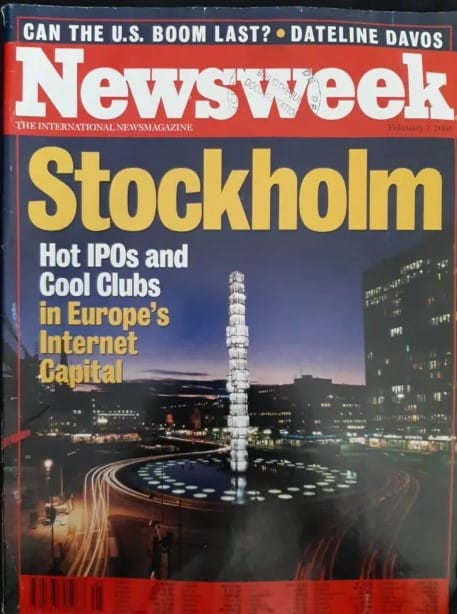
They are fascinated by Jonas Birgersson, Christer Sturmark, and other IT entrepreneurs and note the difference: "The Swedish economy, a wreck less than 10 years ago, has bounced back."
The article was published on February 6, 2000. The date is interesting because the dotcom bubble burst exactly one month later. On March 6, 2000, the Stockholm Stock Exchange reached its highest level to date. It had risen 80 percent in five months. The next day began a dramatic decline, the largest in Swedish history. Larger than the Kreuger crash.
But what burst was a financial bubble with crazy valuations. The ideas that the IT evangelists spread did not burst. On the contrary.
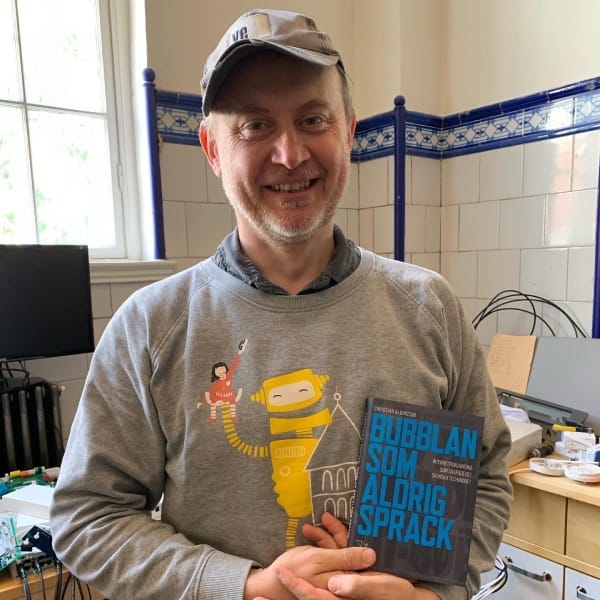
2003
Skype is founded by the Swede Niclas Zennström and the Dane Janus Friis. It becomes Sweden's and Europe's first truly successful internet company. The first unicorn. A startup with a valuation of over one billion dollars.
The significance of Skype is great. As a role model, but also a catalyst for hundreds of other startups. Alumni from Skype have started 950 companies, in 50 countries, with 65,000 employees and an ecosystem value of over $3 trillion.
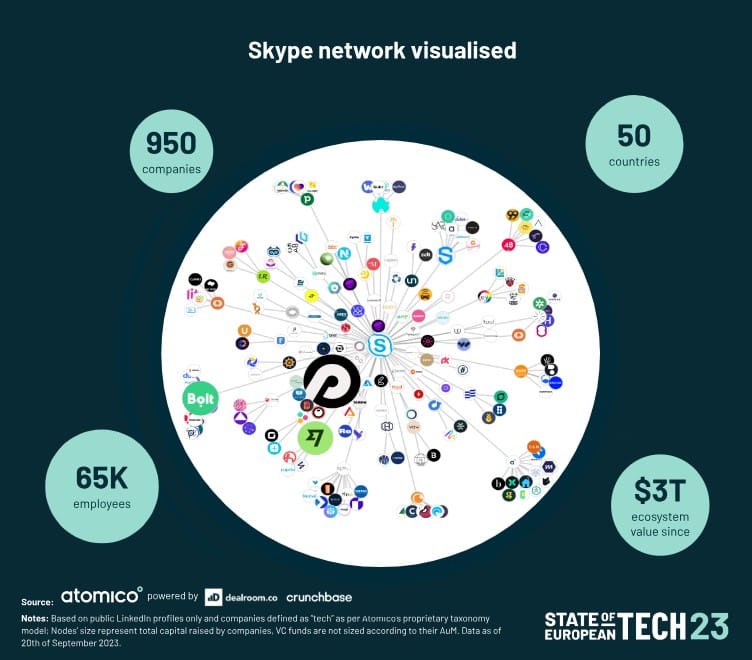
For Sweden, Skype was the start of a long line of successful startups. Spotify, but also a whole bunch of other unicorns. For over ten years, Stockholm has been the city that produced the second most unicorns, after Silicon Valley, measured per capita.
In 2021, it was Bloomberg's turn to visit Stockholm and be fascinated by the Swedish startup miracle: From Spotify to Minecraft, Sweden Proves Fertile Ground for Unicorns
Even if not measured per capita, Sweden ranks high. Fourth in the number of unicorns in Europe. And the population is just 10 million.
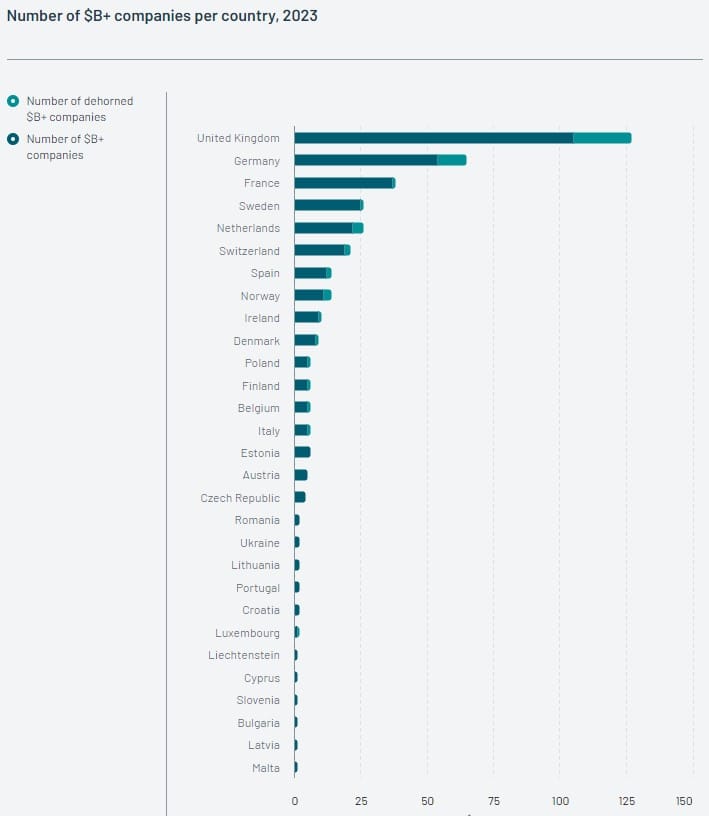
What did Sweden do right?
In an op-ed, it is pointed out that Sweden has recently started to lose pace in terms of digitization and the internet, and they wonder what we have done wrong.
It's an interesting question, also discussed at the latest Swedish AI Commission meeting.
I come to this from a different angle: What did Sweden do right in the 90s? And can we learn something useful for today's AI era?
It's something I've been thinking about for at least ten years. During my first year in Parliament, I visited about 40 startups, venture capital companies, and people active in the Swedish startup scene to try to understand just that. After I became a member of the AI Commission, I have delved deeper.
I started at the home of Eva Lindencrona Ohlin, who in 1994 hosted the meeting with Tim Berners-Lee. In addition to that, she is Sweden's first female doctor in computer science, and was deputy director general of innovation agency Vinnova.
She had baked a delightful cake and I almost ruined the good mood when I pulled out some cinnamon bun semlas from Willys.

But her husband, Tomas Ohlin, and I shared one and were jointly surprised at how good they are.
I know Tomas Ohlin because he is a Warp Premium Supporter and in this context, a perfect person to talk to. Tomas is one of Sweden's IT pioneers, "exhibited" in Sweden's Internet Museum. In the 70s and 80s, he contributed to laying the groundwork for what would become the Swedish IT miracle. Among other things, he imported the first social media to Sweden, laid the groundwork for the KOM system, proposed remote medical care, and introduced "text-TV-internet."
Moreover, he was the chief secretary of the first Swedish IT Commission in 1994.
"The most awesome commission we've ever had," he says.
One thing I got stuck on during our discussion was how positive the discussion around IT and the internet was in the 1990s. Even in the news media. Or non-negative, as Eva points out. Despite Sweden being in a serious crisis, it didn't spill over onto IT.
Trusted the citizens to use IT right
Something that another IT pioneer confirms. Christer Sturmark is today a publisher at Fri Tanke publishing, but in the 1990s he was one of the three leading IT entrepreneurs and evangelists (together with Jonas Birgersson and Johan Stael von Holstein.)
We meet at SoHo House and he provides insights from the IT commissions he participated in in the 90s and early 2000s. One of these commissions proposed the home PC reform.
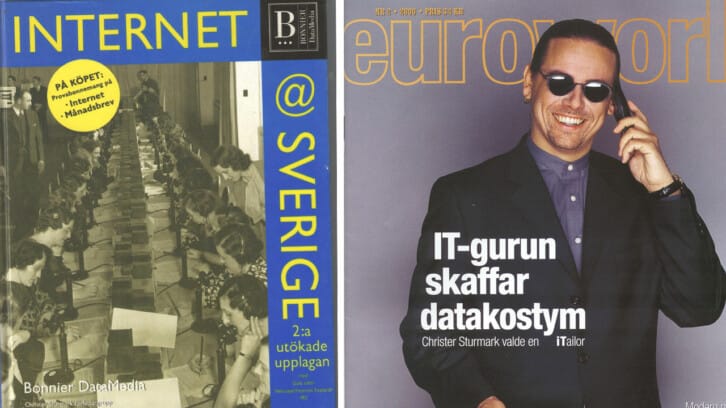
It was really an impossible political reform. The government spent four billion taxpayer kronor to subsidize people getting PCs at home. It did not require them to use them to increase their productivity, or anything like that. The government trusted that people would do something useful with them.
One million people got access to a computer through the home PC reform. At the same time, Sweden began to expand broadband at a rapid pace, mainly thanks to Jonas Birgersson.
Sweden became the most computer- and broadband-dense country in the world. That, combined with the evangelists daring to dream about the future of the internet and talk about these visions, laid the groundwork for Skype, Spotify, Klarna, Minecraft, and other unicorns.
What can we learn from the 90s?
In the op-ed they write that "just enough is not enough to create a Swedish AI miracle."
I agree with that. And to achieve it, we can be inspired by the 90s.
We are now in the same situation, at the beginning of a paradigm shift. Then it was the internet, now it is generative AI.
If we get Swedes to use generative AI more than anyone else, before everyone else, we will win.
Generative AI unleashes creativity. Those who can't write, draw, code, design, or create music, can now do that. The country that first and best unleashes that creativity wins.
It will be unleashed by people becoming centaurs. Half human-half machine.
Winning is actually the wrong term here. If Sweden becomes very good at using generative AI, it doesn't stop Denmark, the U.S., Ghana, or Australia from doing the same thing. Two countries that are equally good at generative AI will not outcompete each other, they will pull each other upwards.
But even if it's not about winning, you can still come first and take the lead. The country that uses generative AI the most, will soon attract major media attention, fascinated by an AI miracle.
Mathias Sundin
The Angry Optimist
By becoming a premium supporter, you help in the creation and sharing of fact-based optimistic news all over the world.
